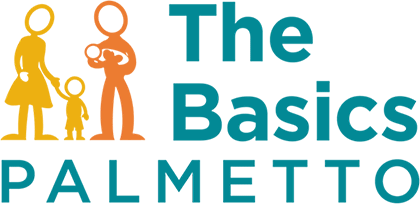HOLD THEM Hold, kiss, and cuddle your infant! Do not worry about spoiling them. There is no need to hold back on sharing love.
RESPOND TO THEM Your infant depends on you to meet their needs. Watch and listen for clues about how they feel and what they need. For example, a cry or whimper may mean that they are hungry or hot. Over time, you will learn to read your infant’s signals. Respond to what you notice. This helps them learn that you care. It also teaches them about cause and effect.
COMFORT THEM When upset, infants have a hard time calming down on their own. They depend on you to help manage their emotions, so comfort them when they get fussy or cry. Bit by bit, they will learn ways to help soothe themselves (like sucking their thumb). Some babies cry more than others. If your baby cries a lot, raise the issue with your doctor.
PLAY WITH THEM Your baby loves to look at your face. Hold them close, smile, make silly faces, and talk in a playful voice. Around 6 or 8 weeks, they will start to smile back. This means they are happy and learning the basics of communication. Have little “conversations” where you respond to each others’ sounds and facial expressions. Take breaks if your baby seems tired or overwhelmed. They might show this by looking away from you.
HAVE A ROUTINE Settle into a consistent routine schedule for daily activities like feeding, naps, bating, reading, and bedtime. Every baby is a little different, so it may take some time to figure out a rhythm that works for your family. Keep in mind that routines change as your baby gets older. For example, bedtime or nap time may change over time.
MANAGE HOUSEHOLD STRESS Stress is normal, but too much stress is bad for a baby’s brain. Things that cause stress for an infant are loud noises, adults who seem upset or angry, or when adults do not respond to their needs. It is important to have strategies for coping when your life gets stressful. Talk to friends, family, or your doctor about ways to deal with stress.

